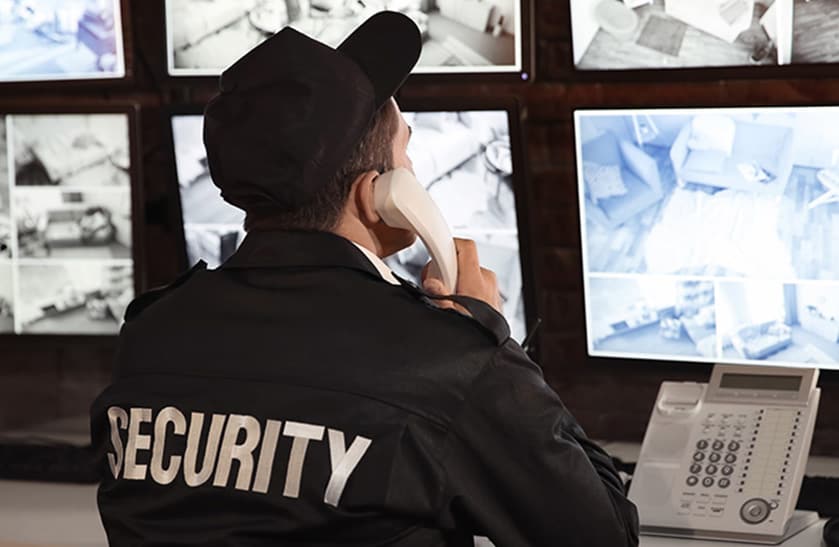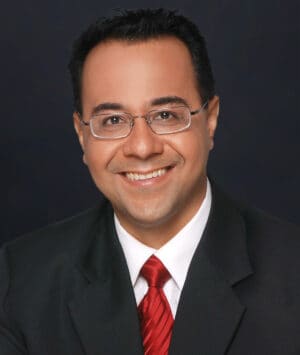
We see them every day, at the entrance or on or abouts our residential property, commercial buildings and even government offices. Some of us know them as “security guard”, whilst others with a tad more sophisticated title of “security officer”. In the good old days and for us young enough to remember, we used to call them with affection and respect “Bhai, jagah”. “Jagah” is a Malay word which literally means guard or be careful. “Bhai” is a Hindi word meaning brother.
A large segment of them in this line of work comprise of senior citizens and Malaysians. Anecdotally speaking, many it would be safe to say are from the lower income strata of our society. Simply put they earn a low wage. Some of us respect them for the honest work they do and yet others take them for granted, as if they do not exist. Based on my personal observations, the latter would be far more accurate.
I wager, you did not know nor care to know that whatever you may identify him or her as, they require a licence issued by the Singapore Police Force, Licensing Department to do what they do. A responsible job, a low paying and thankless one at that.
Let’s settle their job title first. Pursuant to the Private Security Industry Act 2007 (“PSIA”) they are known as Security Officers (“SO”) and not security guard or bhai jagah. An SO is any person who carries out for reward tasks such as patrolling or guarding another’s property, keeping the property under surveillance and with respect to public places, performing screening functions before allowing entry of individuals.
In addition to the terms and conditions of their employment agreement with their employers, their acts and behavior are subject to PSIA. They deserve adequate protection under PSIA for their licence is subject to the discretion of the Licensing Officer (“LO”). He who giveth has the power to take it away.
Section 24(g) of PSIA empowers the LO to revoke the licence of the SO if he or she is of the view that the SO is no longer a fit and proper person to continue holding the licence. PSIA does not define what exactly fit and proper person means. It could mean what the LO thinks its means, or it could be stated in an internal departmental guideline not made know to the public and specifically the SO.
Some may argue that it is unfair to suggest that there are no inherent checks and balances within PSIA for two reasons, one, Section 24(3) mandates that the LO must not exercise his or her “powers” unless the SO is given an opportunity to be heard. The SO must be given 14 days to show cause as to why his or her licence should not be revoked after the LO has already made known his or her intentions to revoke the licence. What this means in simple English is that the LO has already decided to revoke the licence but before the LO signs off on the letter of revocation; the SO is given an opportunity to persuade the LO to undecide what the LO has already decided i.e., revocation of licence.
How is the SO to persuade the LO to change his or her decision if the SO is not privy to the factors which the LO had taken into consideration in support of his intention to revoke the licence; and, in the process, break the cheap rice bowl of the SO? This has to be seen in light of the fact that pursuant to Section 24(2) of PSIA the LO has the discretion of suspending the licence for a period of 6 months, issuing a censure or imposing directions and restrictions to the licence. Revocation of licence is the nuclear option. Under what conditions is the nuclear option to be exercised? No one knows for that falls within the “powers” granted by PSIA to the LO absolutely.
It may be further argued that all is not lost even if the LO’s exercise of his or her discretion is perceived as unfair and unjust, for PSIA allows the SO to appeal to the Minister. The Minister here being the Minister of Home Affairs, or any other senior officer designated by the Minister to hear the appeal. The Minister or his delegate would then give directions for representations to be made by the LO and SO before he decides to sustain the decision of the LO or overrule the LO decision by allowing the appeal.
The purpose of PSIA is not only to regulate the grant of licenses but also seeks to give some semblance of protection to the SO by allowing them to appeal against the exercise of the LO discretion. The 14 days given to the SO to show cause as to why his or her licence should not be revoked is pointless for (a) a decision has already been made to revoke the licence and (b) the SO is not informed of all the factors considered by the LO in coming to the decision to revoke the licence. In the circumstances, what is the SO to say in his show cause letter that would convince the LO not to disrupt his livelihood short of seeing a “bomoh” (a Malay shaman) or a soothsayer. As the LO is not obliged to give reasons in the exercise of his or her powers, how would appealing to the Minister be of any assistance as a check against the exercise of the LO discretion, short of pleading or begging the Minister to “give him a second chance”. Why should the SO be made to plead with the Minister for a second chance when he or she does not know the detailed reasoning for the revocation, reasons why the show cause letter was rejected and most importantly what exactly will the LO be looking for in the show cause letter. The SO would be appealing to the Minister with his hands tied behind his back and his legs chained.
Most if not all SO’s would not know the provisions of the PSIA or even that such legislation exists; perhaps only when they receive the letter from the LO making know his or her intentions to revoke the licence unless convinced otherwise within 14 days. Many SO’s are not highly educated, old and are not financially well off to engage the services of a lawyer to demystify PSIA and for a change, take the LO to task by having him or her substantiate the exercise of his or her discretion under the Act. SO should not be deprived of that basic fundamental right.
It is high time for the authorities to revisit PSIA and see to the appointment of an independent tribunal or committee to review such decisions affecting the livelihood of SO’s and that SO’s be given an opportunity to be heard in person during a show cause hearing with the assistance of an interpreter present and with the option of the SO having a friendly lawyer with him or her to champion his or her cause.
The next time you see your friendly SO, security guard or even bhai jagah, thank them for what they do and tell them that if there are any issues with their licence, you will guide them through the process and help them write a letter to the LO and if need be, assist with appeal to the Minister. It is time for PSIA to be revamped and the absolute powers given to the LO be taken away and assigned to an independent tribunal or committee consisting at the very least one other SO and a representative from the security industry.

Pradeep Gurbani
Consultant
pradeep.gurbani@rhtlawasia.com
+65 6381 6930
Pradeep Gurbani is a Consultant with RHTLaw Asia within the Litigation and Dispute Resolution practice area.

RHTLaw Asia is a member of ONERHT, an integrated network of multidisciplinary professional and specialist services which empowers stakeholders to achieve purposeful growth.
© 2024 RHTLaw Asia LLP. All Rights Reserved.
| Cookie | Duration | Description |
|---|---|---|
| cookielawinfo-checkbox-analytics | 11 months | This cookie is set by GDPR Cookie Consent plugin. The cookie is used to store the user consent for the cookies in the category "Analytics". |
| cookielawinfo-checkbox-functional | 11 months | The cookie is set by GDPR cookie consent to record the user consent for the cookies in the category "Functional". |
| cookielawinfo-checkbox-necessary | 11 months | This cookie is set by GDPR Cookie Consent plugin. The cookies is used to store the user consent for the cookies in the category "Necessary". |
| cookielawinfo-checkbox-others | 11 months | This cookie is set by GDPR Cookie Consent plugin. The cookie is used to store the user consent for the cookies in the category "Other. |
| cookielawinfo-checkbox-performance | 11 months | This cookie is set by GDPR Cookie Consent plugin. The cookie is used to store the user consent for the cookies in the category "Performance". |
| viewed_cookie_policy | 11 months | The cookie is set by the GDPR Cookie Consent plugin and is used to store whether or not user has consented to the use of cookies. It does not store any personal data. |